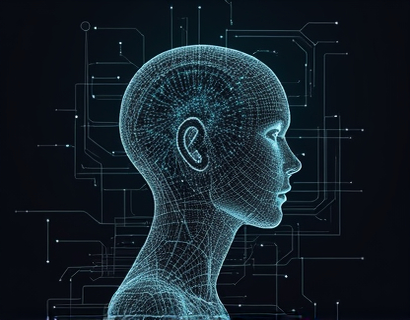AI-Generated Podcasts: Transforming Audio Experiences with Intelligent Content Delivery
The landscape of audio entertainment is undergoing a significant transformation with the advent of AI-generated podcasts. This innovative approach leverages advanced algorithms and machine learning to create immersive and engaging content, redefining listener engagement and simplifying the discovery of insightful discussions on any topic. By merging technology and creativity, AI-driven podcasting offers a unique and captivating experience that is reshaping how we consume audio content.
The Rise of AI in Podcasting
The integration of artificial intelligence in podcasting is not a new concept, but recent advancements have accelerated its adoption and improved its capabilities. Initially, AI was used for basic tasks such as transcription and editing, but now it plays a pivotal role in content creation itself. The ability of AI to analyze vast amounts of data, understand patterns, and generate coherent and contextually relevant content has opened new avenues for podcast producers and enthusiasts alike.
How AI Generates Podcast Content
AI-generated podcasts rely on sophisticated algorithms that can understand and replicate human speech patterns, tone, and even emotional nuances. The process begins with data collection, where the AI is fed a large dataset of audio recordings, transcripts, and relevant metadata. This data serves as the foundation for the AI to learn and generate new content.
The core of AI content generation involves natural language processing (NLP) and generative models. NLP enables the AI to comprehend and generate human-like text, while generative models, such as Generative Adversarial Networks (GANs) and Variational Autoencoders (VAEs), create new content by learning from existing data. These models can produce scripts, dialogue, and even background sounds, making the podcasts feel authentic and engaging.
Benefits of AI-Generated Podcasts
One of the most significant advantages of AI-generated podcasts is the sheer volume and variety of content they can produce. Traditional podcasting relies heavily on human creativity and time, limiting the frequency and diversity of episodes. AI, however, can generate multiple episodes in a fraction of the time, allowing for more frequent updates and a broader range of topics.
Another benefit is the personalization aspect. AI can tailor content to individual listener preferences by analyzing their listening habits and feedback. This personalized approach enhances user engagement and satisfaction, as listeners are more likely to connect with content that resonates with their interests and preferences.
Enhancing Listener Engagement
AI-generated podcasts are designed to captivate and retain listeners through dynamic and interactive content. By incorporating elements such as branching narratives, where the story can evolve based on listener choices, AI can create a more immersive experience. This interactivity not only keeps listeners engaged but also encourages them to explore different paths and outcomes, extending the overall listening experience.
Moreover, AI can analyze real-time listener feedback and adjust the content on the fly. For example, if a particular segment is not resonating with the audience, the AI can modify the script or tone to better align with listener preferences. This adaptability ensures that the content remains relevant and engaging, fostering a stronger connection between the podcast and its audience.
Discovery and Accessibility
The vastness of the podcast ecosystem can be overwhelming, making it challenging for new and niche topics to gain visibility. AI-generated podcasts address this issue by optimizing content for discoverability. By analyzing trending topics, popular keywords, and listener behavior, AI can create metadata and tags that improve search visibility. This ensures that even specialized or lesser-known podcasts can reach their target audience effectively.
Additionally, AI can transcribe and translate podcast content in real-time, breaking down language barriers and making audio experiences accessible to a global audience. This feature not only broadens the reach of podcasts but also promotes inclusivity and cultural exchange.
Creative Possibilities
The creative potential of AI-generated podcasts is vast and exciting. Producers can experiment with unique formats and storytelling techniques that would be impractical or impossible with human-only production. For instance, AI can generate complex multi-threaded narratives, where multiple storylines intersect and influence each other, creating a rich and layered listening experience.
Furthermore, AI can assist in voice acting, providing a range of voices and accents to enhance the authenticity of characters and settings. This capability is particularly useful for fantasy, sci-fi, and historical podcasts, where diverse and accurate vocal performances are crucial.
Challenges and Considerations
Despite the numerous benefits, AI-generated podcasts also face certain challenges. One of the primary concerns is the quality and authenticity of the generated content. While AI has made significant strides, it still lacks the emotional depth and nuance that a human creator can bring to a podcast. Ensuring that AI-generated content feels genuine and relatable remains a key focus for developers and producers.
Another consideration is the ethical use of AI in content creation. Issues such as copyright infringement, bias in algorithms, and the potential for misinformation must be carefully managed. Transparency in how AI is used and the implementation of robust ethical guidelines are essential to maintaining trust and integrity in the podcasting community.
The Future of Audio Entertainment
The integration of AI in podcasting is just the beginning. As technology continues to evolve, we can expect even more sophisticated and seamless content creation processes. The collaboration between human creators and AI will likely become the norm, combining the best of both worlds to produce high-quality, engaging, and diverse audio experiences.
Listeners can look forward to a future where podcasts are not only more abundant and varied but also more personalized and interactive. The lines between traditional media and digital content will blur, creating a rich and dynamic audio landscape that caters to the diverse preferences and needs of modern audiences.
In conclusion, AI-generated podcasts represent a significant leap forward in audio entertainment. By leveraging advanced technology, these podcasts offer a unique blend of creativity, personalization, and accessibility. As the industry continues to grow and evolve, the potential for innovative and engaging audio experiences is limitless.










































